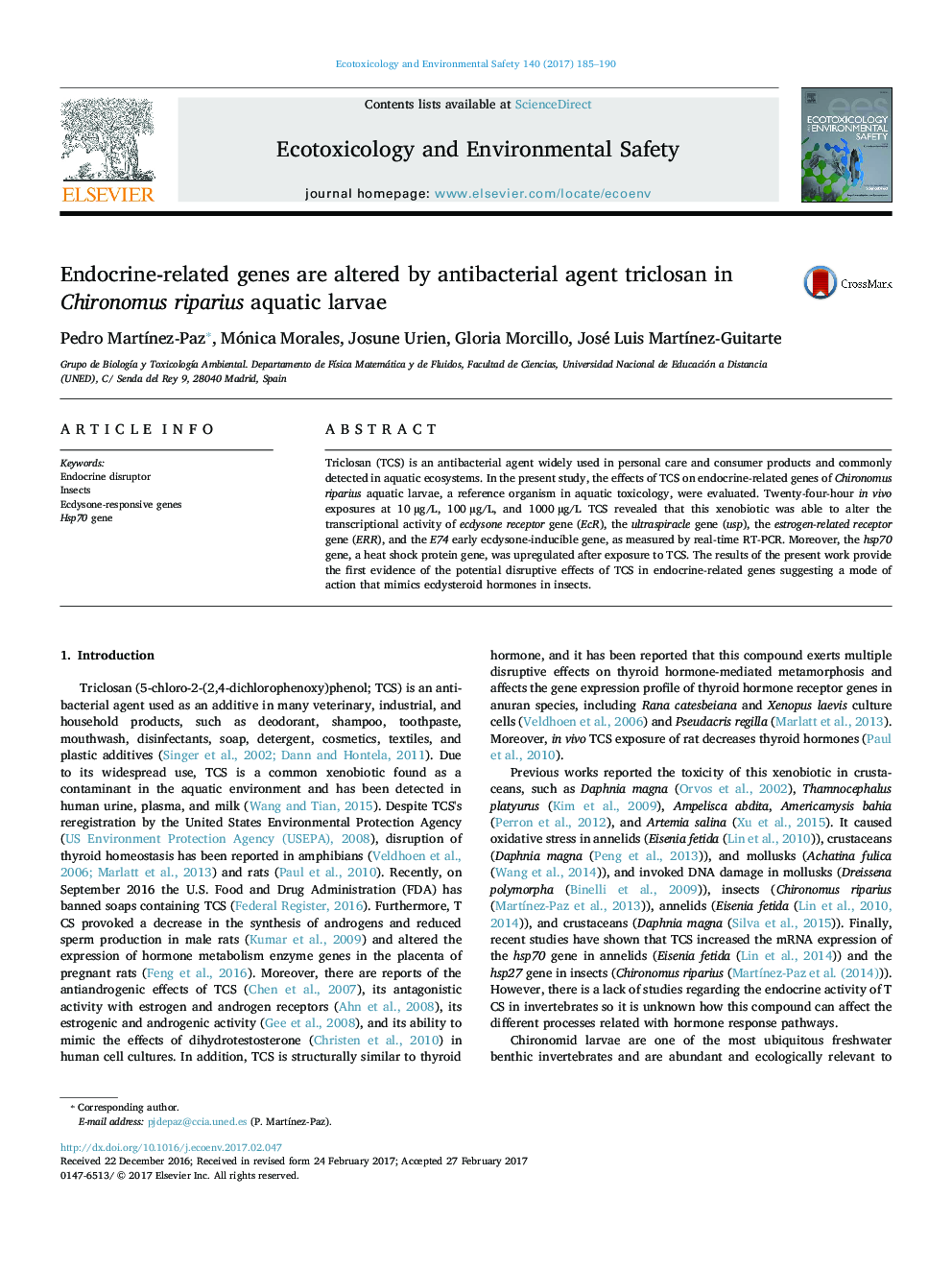| Article ID | Journal | Published Year | Pages | File Type |
|---|---|---|---|---|
| 5747679 | Ecotoxicology and Environmental Safety | 2017 | 6 Pages |
Abstract
Triclosan (TCS) is an antibacterial agent widely used in personal care and consumer products and commonly detected in aquatic ecosystems. In the present study, the effects of TCS on endocrine-related genes of Chironomus riparius aquatic larvae, a reference organism in aquatic toxicology, were evaluated. Twenty-four-hour in vivo exposures at 10 µg/L, 100 µg/L, and 1000 µg/L TCS revealed that this xenobiotic was able to alter the transcriptional activity of ecdysone receptor gene (EcR), the ultraspiracle gene (usp), the estrogen-related receptor gene (ERR), and the E74 early ecdysone-inducible gene, as measured by real-time RT-PCR. Moreover, the hsp70 gene, a heat shock protein gene, was upregulated after exposure to TCS. The results of the present work provide the first evidence of the potential disruptive effects of TCS in endocrine-related genes suggesting a mode of action that mimics ecdysteroid hormones in insects.
Keywords
Related Topics
Life Sciences
Environmental Science
Environmental Chemistry
Authors
Pedro MartÃnez-Paz, Mónica Morales, Josune Urien, Gloria Morcillo, José Luis MartÃnez-Guitarte,
